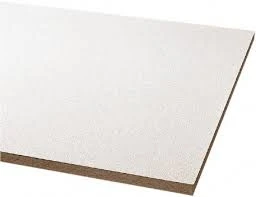Nov . 20, 2024 22:56 Back to list
mineral wool insulation sheets
Understanding Mineral Wool Insulation Sheets Benefits and Uses
Mineral wool insulation sheets, also known as rock wool or stone wool, are versatile insulating materials widely used in residential, commercial, and industrial applications. This article explores the properties, benefits, and applications of mineral wool insulation, highlighting its significance in energy efficiency and sustainable building practices.
What is Mineral Wool Insulation?
Mineral wool insulation is made from natural or recycled minerals, primarily basalt rock and slag from steel mills. These materials are heated to high temperatures and then spun into fine fibers, which are then compressed into sheets or batts. The creation of mineral wool involves a complex and energy-intensive manufacturing process, but the end product boasts exceptional thermal insulation properties and acoustic performance.
Benefits of Mineral Wool Insulation
1. Thermal Performance Mineral wool has a high R-value, which measures the insulation's effectiveness. It helps maintain consistent indoor temperatures, reducing the need for heating and cooling systems to work excessively. This leads to lower energy bills and enhances comfort in living and working spaces.
2. Sound Absorption One of the significant advantages of mineral wool insulation is its excellent sound-dampening properties. The fibrous structure of the material helps absorb sound waves, making it an ideal choice for residential areas, music studios, and commercial buildings where noise reduction is a priority.
3. Fire Resistance Mineral wool is non-combustible and can withstand high temperatures, making it a fire-resistant insulation material. This feature is crucial for ensuring safety, especially in commercial buildings where regulations require flame-resistant materials.
4. Moisture Resistance Unlike some traditional insulation materials, mineral wool is resistant to moisture absorption. It does not promote mold or mildew growth, which can be a significant concern in areas with high humidity. This characteristic further contributes to better indoor air quality.
5. Sustainability Mineral wool is often produced from recycled materials, making it an environmentally friendly option. Additionally, its durability means it has a long lifespan, reducing the frequency of replacements and minimizing waste.
mineral wool insulation sheets

Applications of Mineral Wool Insulation Sheets
Mineral wool insulation sheets are versatile and can be used across various applications
- Residential Insulation In homes, mineral wool can be installed in walls, attics, and floors. Its effective thermal performance enhances energy efficiency and contributes to reduced heating and cooling costs.
- Commercial Buildings Mineral wool insulation is frequently used in office buildings, shopping centers, and warehouses. Its sound absorption qualities make it suitable for spaces where acoustics are important, such as auditoriums, classrooms, and conference rooms.
- Industrial Applications In factories and manufacturing facilities, mineral wool acts as both thermal insulation and fire protection. It is used in pipe insulation, equipment insulation, and fireproofing applications, ensuring safety and energy efficiency.
- HVAC Systems Mineral wool is often used within HVAC systems for thermal insulation of ducts. This prevents energy loss while maintaining optimal temperature control throughout a building.
Installation Considerations
When installing mineral wool insulation sheets, professional assistance is often recommended to ensure proper handling and installation techniques. It is essential to wear protective gear, as the fibers can irritate the skin, eyes, or respiratory system during installation. Proper sealing, such as with vapor barriers, is also crucial to maximizing the insulation's performance and preventing moisture-related issues.
Conclusion
In summary, mineral wool insulation sheets are an excellent choice for anyone looking to improve energy efficiency, soundproofing, and fire resistance in their building projects. With its myriad of benefits—thermal performance, sound absorption, fire resistance, moisture tolerance, and sustainability—mineral wool stands out as a valuable material for modern construction practices. Whether for residential homes or commercial spaces, it plays a vital role in creating comfortable, energy-efficient, and safe environments. As building regulations continue to focus on sustainability and energy efficiency, mineral wool insulation will likely remain a preferred choice for architects and builders alike.
-
Durable Ceiling T Grid Systems | Easy InstallationNewsAug.29,2025
-
PVC Gypsum Ceiling: Durable, Laminated Tiles for Modern SpacesNewsAug.28,2025
-
Pvc Gypsum Ceiling Is DurableNewsAug.21,2025
-
Mineral Fiber Board Is DurableNewsAug.21,2025
-
Ceiling Tile Clip Reusable DesignNewsAug.21,2025
-
Ceiling T Grid Modular DesignNewsAug.21,2025







